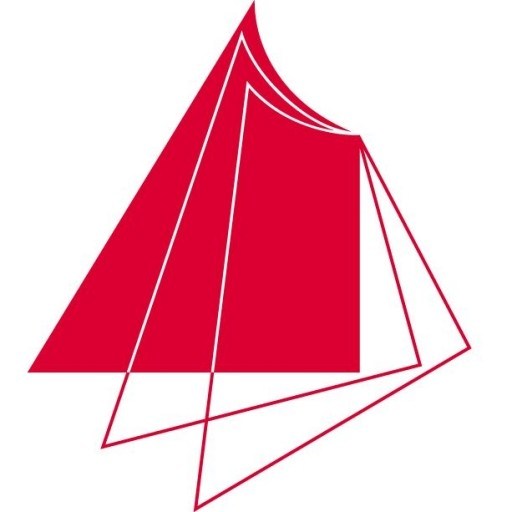Photos of university / #hochschule_karlsruhe
These data come from many different sources, including earth orbiting satellites, GNSS, MEMS, air- and sea-borne sensors, and ground-based instruments. The data are processed with state-of-the-art communication and information technologies concerning software, hardware and geoinformation systems (GIS) in a broad spectrum of complex mathematical models.
Thus, geomatics, geomatic products, services and R&D have an impact on and applications in all disciplines which depend on geo-referenced spatial data, including information and monitoring of the environment, planning, engineering and geosciences, navigation, land development and management. As economics and political decisions are inherently and increasingly based on geoinformation, geomatics plays a key role for society, industry, and the economy.
The Master's programme Geomatics (MSc) focuses on the following competences:
- Global and regional reference frames and geo-referencing
- Space, physical, integrated and engineering geodesy
- Remote sensing, photogrammetry and geodetic geo-monitoring
- Data acquisition, statistical analysis
- Parameter estimation on modelling and geo-referencing of sensor & hybrid data types
- Computer-aided visualisation, communication and use of geospatial information
- Spatial analysis and geostatistics in the context of IT and communication technologies
- Navigation technologies and mobile GIS
- Software development e.g., on Open Source GIS, Navigation Technologies & Mobile GIS
Educational organisation
The aim of the Master's programme in Geomatics (MSc) is to provide students with extensive, detailed knowledge of the theory, scientific methods, and practice in geomatics, combined with a high level of competence in the acquisition, modelling, processing, and management of sensor-data, geodata, and geoinformation. The elective modules allow individual specialisation in the different fields of geomatics, GI sciences, navigation and mobile information technologies.The study programme is organised as follows (compulsory and elective modules):
- First Semester: Statistics & Adjustment and Reference Systems, Photogrammetry and Remote Sensing, GIS and Databases, Thematic Cartography, Language Courses and Scientific Work
- Second Semester: Project Management and GIS, Geography, Facility Management, Navigation, Soft Skills and Language Courses, Visualisation in the Internet, Location-based Services and Visualisation, Satellite Geodesy and Geodetic Monitoring, Digital Signal Processing and Numerical Methods
- Third Semester: Software Engineering and Programming, Navigation Technologies & Mobile GIS, Open Source GIS, Advanced Thematic Cartography & Visualisation, GIS Project, Physical Geodesy, Adjustment and Mathematical Geodesy, Engineering Photogrammetry and Geodesy, Geostatistics, Satellite Image Analysis
- Fourth Semester: Seminar, Master's Thesis and Colloquium
Due to the high demand for qualified geomatics engineers, graduates of this MSc programme are guaranteed a wide choice of challenging and rewarding careers at national and international level in industry as well as at scientific institutions. Furthermore, the MSc degree generally qualifies graduates for PhD programmes. At Karlsruhe University of Applied Sciences, PhD studies can be carried out in cooperation with various German and foreign partner universities.
Study abroad unit(s)
Some courses can be completed at our partner universities in the UK, Russia, the Baltic States, USA, Canada, and Spain (double degree).Internships
OptionalForms of assessment
Most examinations are in written form. Candidates have to write their exams in English.Course objectives
The aim of the International Master's programme in Geomatics (MSc) is to provide students with extensive, detailed knowledge of the theory, scientific methods, and practice in geomatics, combined with a high level of competence in the acquisition, modelling, processing, and management of sensor data, hybrid geodata, and geoinformation. The elective modules allow for individual specialisation in the different fields of geomatics, GI sciences, geodesy, navigation technologies, mobile GIS & IT. Laboratory work and the inclusion of sophisticated research and development projects (R&D) are regarded as essential characteristics and components of the Master's programme in Geomatics. Graduates are thus well versed in science- and research-oriented academic education, while at the same time meeting the requirements of professional skills requested by the industry.Language requirements
TOEFL (min. 500 points paper-based), IELTS (min. 5.0) or equivalentAcademic requirements
Bachelor's degree in geodesy, cartography, geography, surveying, geodetic engineering, civil engineering or similarSignificant knowledge in GIS (6 CP)
Significant knowledge in higher programming languages (6 CP)
Bachelor's grade better/equal to 2.3 (according to the German grading system)
Enrolment fees
142 EUR per semesterCosts of living
Approx. 700 EUR per month to cover personal expensesJob opportunities
Some Geomatics students may find a student assistant job at universities or research institutions, or they may find employment in the industry in Karlsruhe.Funding opportunities within the university
Students from partner universities may be awarded a Baden-Württemberg scholarship.Arrival support
Arrival support is provided by the university's International Office.Services and support for international students
Accommodation service; orientation programme; extensive study guidance, counselling by peers, tutors and professors; extensive programme of excursions and special events for international studentsAccommodation
Students can apply for student housing through the Studierendenwerk (Student Services Office) at http://www.studentenwerk-karlsruhe.de/en/wohnen/. However, there is usually a waiting list for dormitory accommodation.The Studierendenwerk website also provides information about its extensive private accommodation service.








